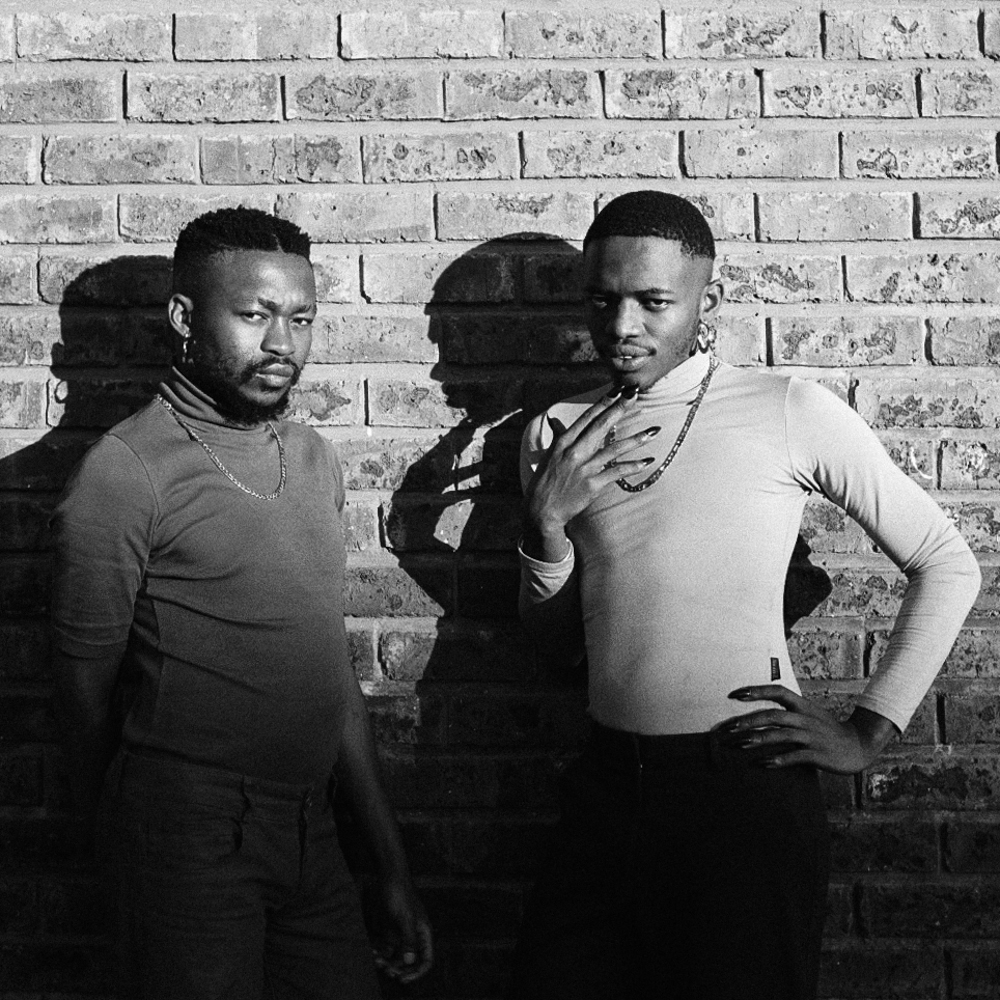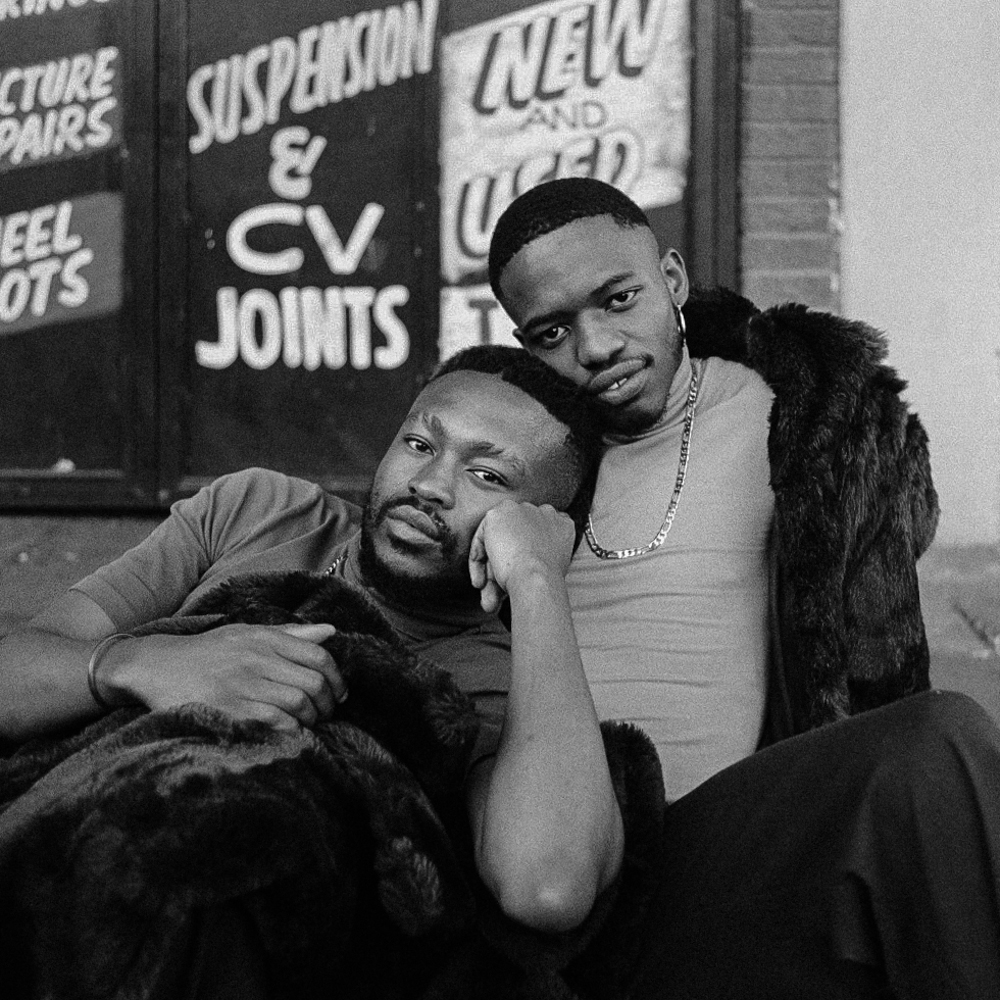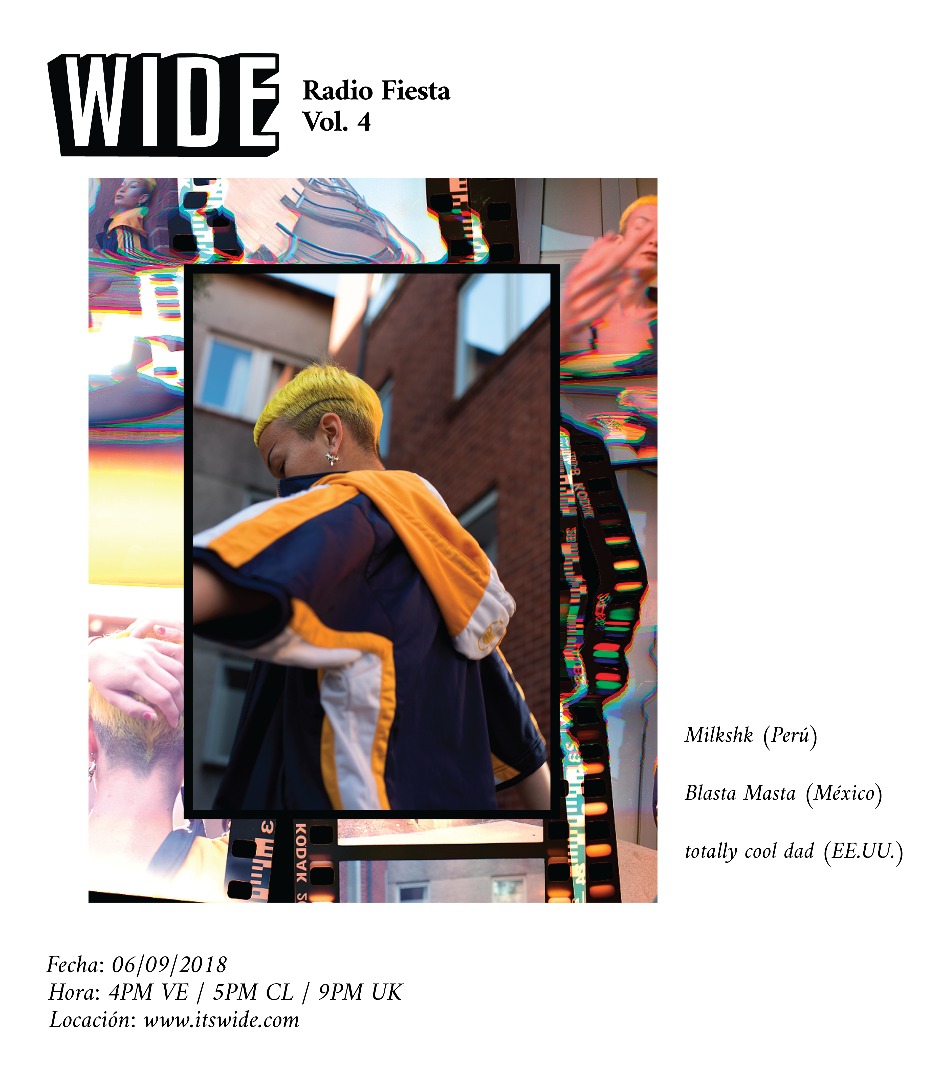New Discovery: FAKA

For those of us who’ve mingled in the discourses of gender and minorities on the XXIth century (be these ethnical, sexual, whathaveyou), the comeuppance of a project like FAKA isn’t surprising at all. Nonetheless, the artistic dyad-collective doesn’t fail to impress as a perfect, almost uproarious incarnation of “that which isn’t represented”, that which slips out of the anglo-euro heteronormative gaze, that dwelves in the abject and the subordinate.
“FAKA is a Zulu word which initially means to enter or penetrate. It’s a sexual innuendo but it also puts a lot of power on queer and femme identities. It also means to occupy. That’s something we do at spaces that exclude us”.

As a south-african duo – specifically, from Johannesburg – it’s a bit hard to get to know them in depth. There’s a few internet articles showcasing them and most of them religiously repeat the “about” section found on their website, describing them as ” black queer bodies navigating the cis-hetero-topia of post-colonial Africa”. On an interview for Afropunk magazine, they elaborate on their argument:
“We seek to reify and validate the new vocabularies that communicate the liberation of black queer identities. We wish to create a dialogue that transcends the bounds of queer activist rhetoric. Rather, it is a discourse of intersectional body politics that are rooted in the structural oppression of black bodies that we are more interested in challenging”.
“Reification: a piece of sociological slang which means “to become (a) thing”. This is said about social, cultural or linguistic practices so deeply held and unquestioned that they attain an almost material substance: much in the way that a red light with a police patrol sitting beside it becomes a wall for speeding drivers. Gender is, also, a reified social construction, like the customs and rules of propriety of a certain community. The boys of FAKA are working so that the freedom of the non-binary and sexually diverse communities of South Africa and the rest of the world becomes as solid as reality.
A slightly more academical chant – maybe not the most accesible for the layman – but there it is: transcending rhetoric, do, move, create, impress. They know that the world will be conquered by its sensibility, not by the transparent, undisputed and rather inefectual political truism that “everyone has a right to be who they are”. So they chose to charm us with their catwalk moves and their graceful gesturing in the South African outdoors – That’s more than enough! – amidst the bush; with lyrics that never abandon their native language, cast in the home-grown – still, bent on taking the world – sounds of Gqom.
This mis-en-scéne denounces the scarcity of opportunities of Africans in the modern art medium which so often fetishizes their “alterity” and “exotism”. More than a musical project, FAKA is a think-tank with their agenda set on supporting and promoting other fellow queer african artists and social transformation.
Their literary works feature comedic and reflective vignettes of their adventures in the city, with lovers overtaken by performance anxiety (and all its delightful griefs) or the feeling of invincibility that comes from having some football-player dick on your inbox (as they put it: a
delirium of Grindr). Within these funny and mordacious anecdotes they set a tongue-in-cheek tone for the more serious questions: Why do we (only) copy the pornographic top and bottom choreography? How come there’s still an unresolved, underlying obsession for classical
masculinities (which they call “niveaness“) and its privileges in the gay medium? Why is it that what is called “a safe space” seems to resemble a ghetto, appearing hospitable only out of custom? Why do we bone, fuck or make love in order to feel accepted rather than for the taste?
Infected as they are by the virus of postmodernism, their works are a delight for those traversing the frontiers of the scholarly and the bohemian world. To say the least, they will become a must-hear for those who’d say – as if lacking all pretention – “I’m listening to African electronic music!”. Regarding this humble editorial, we love them <3




